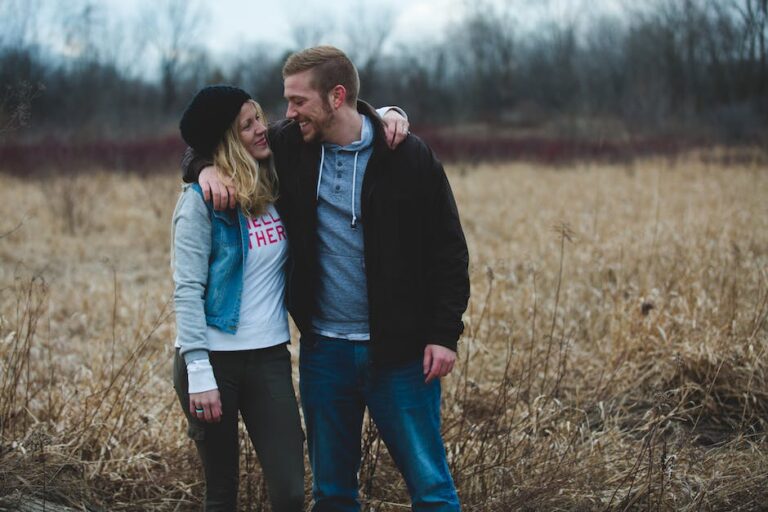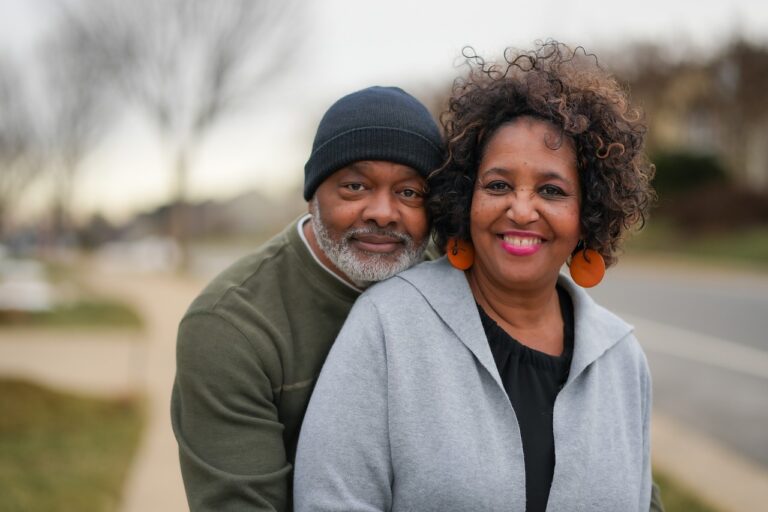Casual Dating And Self-Care
If you’re someone who’s navigating the realm of dating, whether you’re a teenager or an adult, you know it can often be a rollercoaster of emotions. It’s exciting, nerve-wracking, and sometimes even exhausting. In this article, we’ll explore the intersection of casual dating and self-care, a concept that may seem foreign to some but is increasingly important in today’s fast-paced world. By understanding how to prioritize your own well-being while still enjoying the casual dating scene, you’ll be equipped to navigate this aspect of your life with more confidence and ease. So let’s dive in and explore the world of casual dating and self-care together!
I. What is Casual Dating?
A. Definition of Casual Dating
Casual dating refers to a type of relationship where individuals engage in non-committal interactions with one another. This means that there is no expectation of exclusivity, long-term commitment, or the traditional responsibilities that come with a serious partnership. It is a way for people to explore connections, have fun, and enjoy each other’s company without the pressure of a committed relationship.
B. Characteristics of Casual Dating
In casual dating, both parties involved are aware that the relationship is not meant to be serious or long-lasting. It is characterized by its flexibility, as individuals can date multiple people at the same time and have the freedom to end the relationship at any point without any strings attached. Casual dating is typically more casual, less intense, and allows for a greater sense of independence and personal freedom.
C. Benefits of Casual Dating
Casual dating offers several benefits for those who are not ready or looking for a committed relationship. It allows individuals to explore their own needs and desires, get to know themselves better, and gain more clarity about their preferences. It also provides an opportunity to meet different types of people, experience new things, and have a more varied social life. In addition, casual dating can be a source of fun, excitement, and companionship without the pressure and responsibilities that come with commitment.
II. Importance of Self-Care in Casual Dating
A. Understanding Self-Care
Self-care refers to the intentional actions and practices that individuals take to prioritize their own physical, mental, and emotional well-being. It involves recognizing one’s own needs and taking steps to meet them in order to maintain a healthy and fulfilling life. Self-care is crucial in all areas of life, including casual dating, as it ensures that individuals prioritize their own happiness and emotional well-being.
B. Why Self-Care Matters in Casual Dating
In casual dating, it is easy to become so focused on the other person or on maintaining multiple relationships that individuals neglect their own needs. Without practicing self-care, individuals may experience burnout, increased stress, and a diminished sense of self-worth. Prioritizing self-care in casual dating allows individuals to maintain their emotional well-being, set healthy boundaries, and make choices that align with their own values and desires.
C. Balancing Self-Care and Casual Dating
Balancing self-care and casual dating may require some deliberate effort and self-reflection. It is important to find a healthy balance between meeting one’s own needs and investing time and energy into the relationships. It is crucial to remember that self-care is not selfish; it is essential for maintaining overall happiness and well-being. By setting boundaries, prioritizing personal needs, and engaging in activities that bring joy, individuals can successfully navigate the world of casual dating while still caring for themselves.
III. Strategies for Practicing Self-Care in Casual Dating
A. Prioritizing Your Needs
One of the key strategies for practicing self-care in casual dating is to prioritize your own needs. Take the time to reflect on what makes you happy, fulfilled, and emotionally nourished. It is essential to identify and communicate your own boundaries, desires, and expectations within the relationship. By prioritizing your needs, you maintain a sense of self and ensure that your own well-being is not compromised.
B. Setting Boundaries
Setting boundaries is crucial in any relationship, including casual dating. Clearly communicating your expectations, limits, and boundaries helps establish a healthy dynamic between you and your partner(s). This may include discussing topics such as exclusivity, the level of emotional involvement, and the frequency of contact. By setting boundaries, you create a sense of security, respect, and self-preservation in the relationship.
C. Regular Check-Ins with Yourself
Engaging in regular check-ins with yourself is an essential self-care practice in casual dating. Take the time to reflect on how you are feeling, whether your needs are being met, and if the relationship aligns with your values and desires. Regular introspection allows you to stay connected to your own feelings and desires, and make adjustments or decisions accordingly.
D. Engaging in Activities that Bring You Joy
In the midst of casual dating, it is important to continue engaging in activities that bring you joy and fulfillment outside of the relationship. Pursue hobbies, spend time with friends, or take up new interests that contribute to your overall happiness. By nurturing your own passions and interests, you maintain a sense of fulfillment and happiness that is independent of the casual dating experience.
E. Practicing Open Communication
Open communication is essential for maintaining emotional well-being in casual dating. Express how you feel, what you want, and any concerns or issues that may arise. Effective communication helps avoid misunderstandings, reduces stress, and fosters a sense of trust and intimacy in the relationship. By openly expressing your thoughts and feelings, you create a more fulfilling and authentic connection with your partner(s).
IV. Maintaining Emotional Well-Being in Casual Dating
A. Managing Expectations
Managing expectations is crucial in maintaining emotional well-being in casual dating. It is important to recognize that casual dating inherently means there is no commitment or exclusivity. By managing expectations, individuals can avoid developing unrealistic hopes or becoming emotionally attached to someone who may not have the same intentions. It is essential to stay grounded and remind yourself of the casual nature of the relationship.
B. Dealing with Rejection
Rejection is a common experience in dating, and casual dating is no exception. It is important to have strategies in place for dealing with rejection in a healthy way. Recognize that rejection is not a reflection of your self-worth, but rather a mismatch of desires or circumstances. Practice self-compassion, lean on friends and support systems, and engage in self-care to regain emotional balance and resilience in the face of rejection.
C. 

Casual dating can sometimes activate emotional triggers due to past experiences or insecurities. It is important to recognize when emotional triggers are being activated and to address them in a healthy manner. This may involve self-reflection, seeking therapy or counseling, or engaging in self-soothing activities that help regulate emotions. By acknowledging and addressing emotional triggers, individuals can maintain emotional well-being and avoid unnecessary turmoil in their casual dating experiences.
D. Taking Time for Reflection and Self-Evaluation
Regularly taking time for reflection and self-evaluation is a valuable practice in maintaining emotional well-being in casual dating. Consider your experiences, learn from them, and identify patterns or behaviors that may not align with your desired outcomes. Self-evaluation allows for personal growth, learning, and introspection, ultimately contributing to healthier and more fulfilling casual dating experiences.
V. Physical Self-Care in Casual Dating
A. Nurturing Your Body
Physical self-care is an essential aspect of overall well-being, and it should not be overlooked in the context of casual dating. Take care of your body by engaging in regular exercise, eating nutritious foods, and getting enough sleep. Prioritize activities that promote physical well-being and contribute to your overall health and vitality.
B. Practicing Safe Intimacy
When engaging in physical intimacy in casual dating, it is crucial to prioritize safety and consent. Practice safe sex by using protection, getting regularly tested for sexually transmitted infections (STIs), and openly discussing boundaries and expectations with your partner(s).

C. Prioritizing Sexual Health
In addition to practicing safe intimacy, it is important to prioritize your sexual health in casual dating. This involves regular check-ups with healthcare professionals, staying informed about sexual health practices and resources, and being proactive in maintaining your sexual well-being. By prioritizing sexual health, you empower yourself with knowledge and ensure a positive and responsible experience in casual dating.
VI. Mental and Emotional Self-Care in Casual Dating
A. Cultivating Positive Self-Talk
Mental and emotional self-care in casual dating involves cultivating positive self-talk. Be kind to yourself and challenge negative thoughts or self-doubt. Practice affirmations and remind yourself of your worth and the qualities you bring to the relationship. By nurturing positive self-talk, you maintain a healthy mindset and boost your overall mental and emotional well-being.
B. Managing Stress and Anxiety
Casual dating can sometimes come with its fair share of stress and anxiety. It is important to have strategies in place to manage these emotions effectively. Engage in activities that reduce stress, such as meditation, deep breathing exercises, or engaging in hobbies. Prioritize self-care activities that promote relaxation and help you cope with any stress or anxiety that may arise in your casual dating experiences.
C. Seeking Support from Friends and Professionals
Seeking support from friends and professionals is a valuable self-care practice in casual dating. Share your thoughts and feelings with trusted friends or family members who can offer an empathetic ear and valuable advice. Additionally, consider seeking professional support, such as therapy or counseling, to navigate any challenges or emotional complexities that may arise in your casual dating journey. By seeking support, you foster emotional resilience and ensure that your mental well-being is prioritized.
VII. Balancing Multiple Casual Relationships with Self-Care
A. Assessing Your Capacity for Multiple Relationships
Balancing multiple casual relationships requires assessing your capacity to effectively manage them alongside your self-care practices. Consider your own emotional bandwidth, time commitments, and ability to communicate and maintain boundaries with multiple partners. It is important to be honest with yourself about what you can realistically handle and ensure that self-care remains a priority throughout this process.
B. Setting Clear Boundaries with Multiple Partners
In balancing multiple casual relationships, setting clear boundaries becomes even more crucial. Communicate openly and honestly with each partner about your expectations, desires, and limitations. Establish guidelines that respect everyone involved and ensure that your self-care practices are not compromised. Setting clear boundaries helps maintain emotional well-being and ensures that all parties are on the same page.
C. Maintaining Open and Honest Communication
Open and honest communication is essential when navigating multiple casual relationships.

D. Recognizing and Addressing Jealousy or Insecurity
Jealousy or insecurity can arise when balancing multiple casual relationships. It is important to recognize these emotions and address them in a healthy and constructive manner. Engage in self-reflection and determine the source of these emotions. Communicate openly with your partners about any concerns or insecurities, and work together to find solutions that prioritize everyone’s emotional well-being. By addressing jealousy or insecurity, you foster healthier and more fulfilling casual relationships.
VIII. Long-Term Self-Care Habits for Casual Daters
A. Self-Reflection and Learning
Engaging in regular self-reflection and continuous learning is vital for long-term self-care in casual dating. Take the time to reflect on your experiences, learn from them, and identify areas for personal growth. Seek resources, books, or workshops that can enhance your understanding of relationships and emotional well-being. By prioritizing self-reflection and learning, you ensure personal growth and development throughout your casual dating journey.
B. Cultivating Independence
Cultivating independence is an important long-term self-care habit for casual daters. It involves maintaining a strong sense of self and not becoming overly reliant on the relationship(s) for happiness or fulfillment. Nurture your own interests, pursue personal goals, and maintain your own social circle outside of the casual relationships. By cultivating independence, you ensure that your well-being is not solely dependent on the casual dating experience.
C. Pursuing Personal Growth Outside of Dating
In addition to cultivating independence, pursuing personal growth outside of dating is essential for long-term self-care. Set personal goals, develop new skills, or engage in activities that contribute to your personal growth and fulfillment. By investing in your own growth and development, you enhance your overall well-being, confidence, and happiness, independent of the casual dating experiences.
IX. Transitioning from Casual Dating to a Committed Relationship
A. Assessing Your Changing Needs
Transitioning from casual dating to a committed relationship requires assessing your changing needs and desires. Take the time to reflect on how your feelings have evolved and whether you are ready for a deeper level of commitment. Assess whether your values, goals, and expectations align with those of your partner(s). By assessing your changing needs, you ensure that the transition is based on genuine compatibility and desires.
B. Communicating Your Desires and Expectations
Effective and open communication is crucial when transitioning from casual dating to a committed relationship. Clearly and honestly communicate your desires and expectations with your partner(s). Discuss topics such as exclusivity, future goals, and long-term compatibility. By openly communicating your desires and expectations, you create a solid foundation for the transition and ensure that both parties are on the same page.
C. Navigating the Transition with Self-Care
Transitioning from casual dating to a committed relationship can be an emotional and transformative journey. Navigating this transition with self-care ensures that your emotional well-being remains a priority. Regularly check in with yourself and assess how the transition is impacting your own happiness and fulfillment. Engage in self-care practices and communicate openly with your partner(s) to ensure that the transition is a positive and healthy experience for all involved.
X. Conclusion
Casual dating can be a worthwhile and fulfilling experience, especially when practiced with a focus on self-care. By understanding the definition and characteristics of casual dating, prioritizing self-care, maintaining emotional well-being, and nurturing physical, mental, and emotional health, individuals can engage in casual dating with intention and personal fulfillment. By practicing self-reflection, setting boundaries, and seeking support, casual daters can strike a balance between multiple relationships while prioritizing their own well-being. As individuals cultivate long-term self-care habits, they can navigate the transition from casual dating to a committed relationship with open communication and self-awareness. Ultimately, the integration of self-care in casual dating enhances overall happiness and well-being, ultimately leading to healthier and more fulfilling experiences in the realm of dating.






